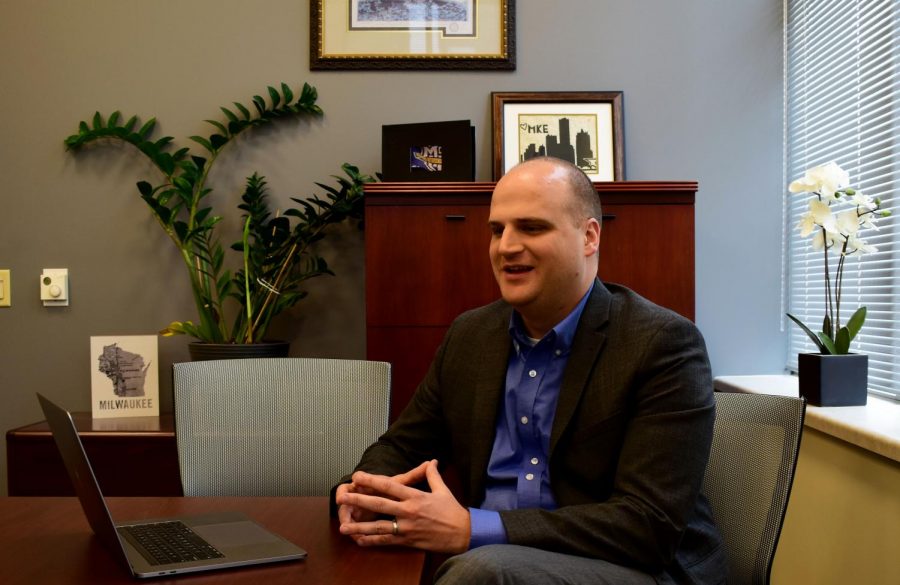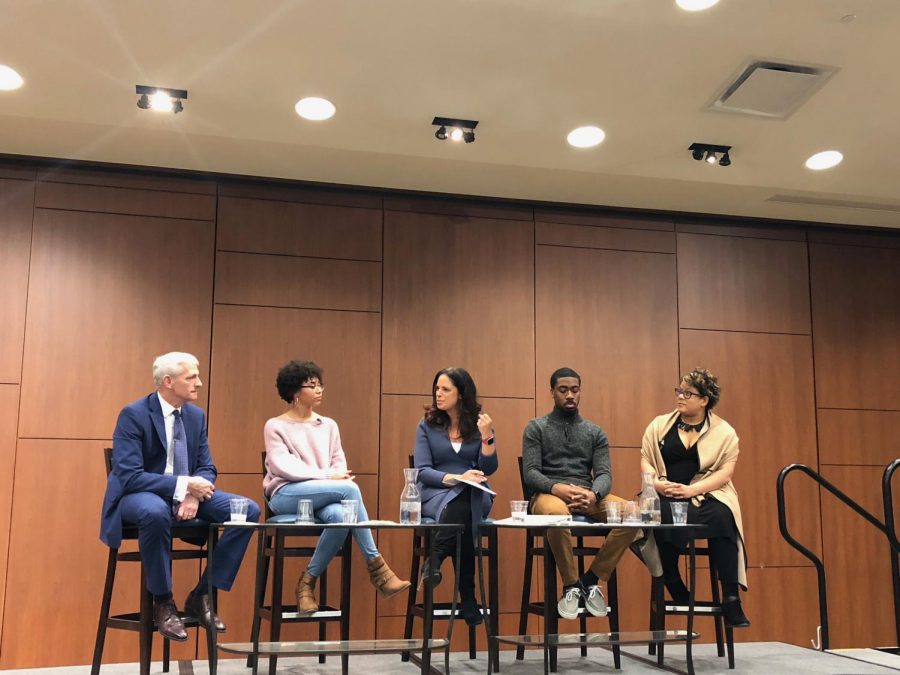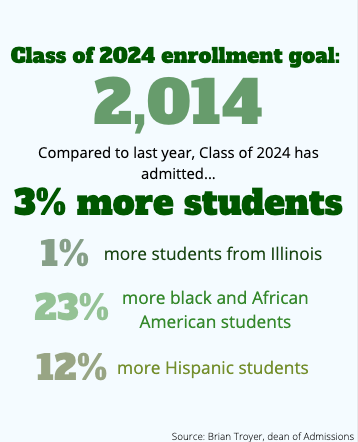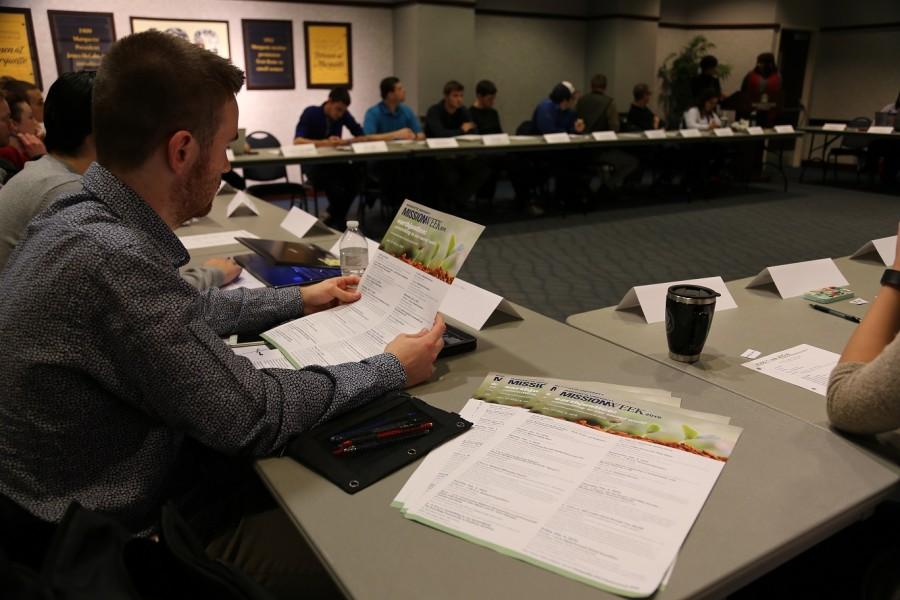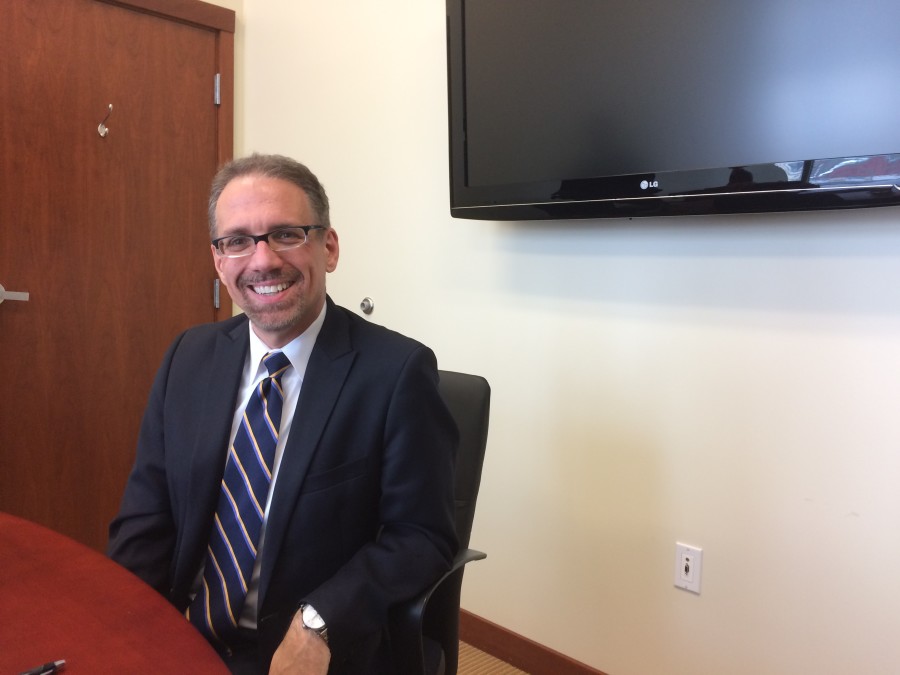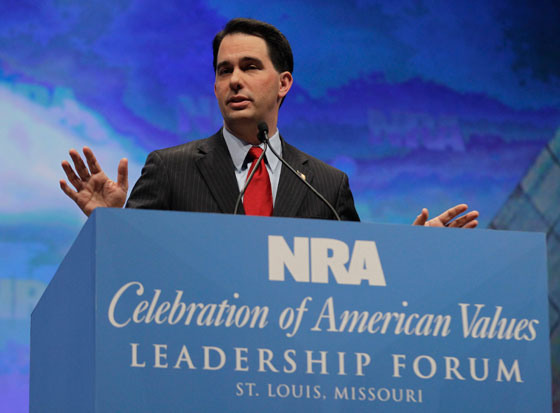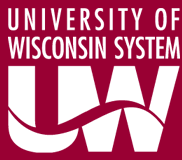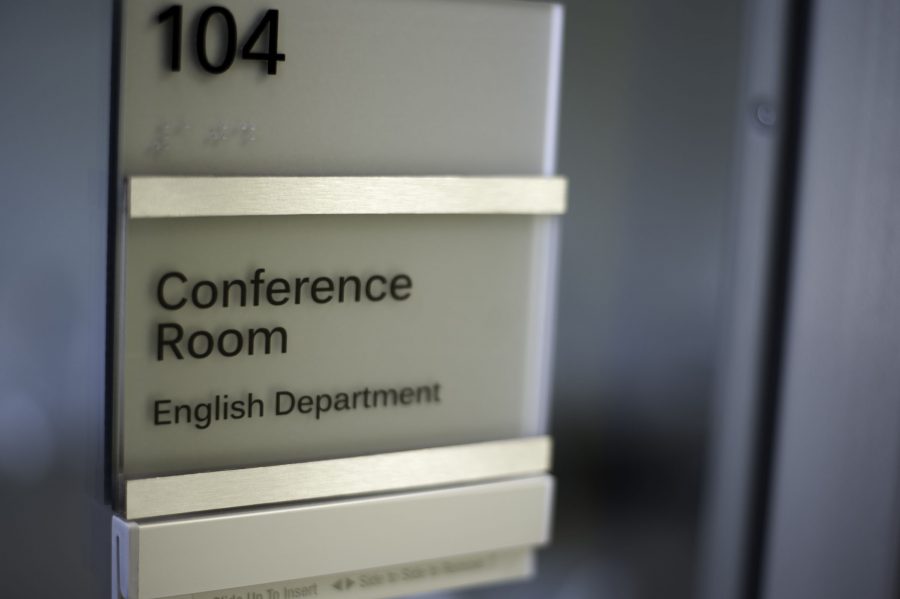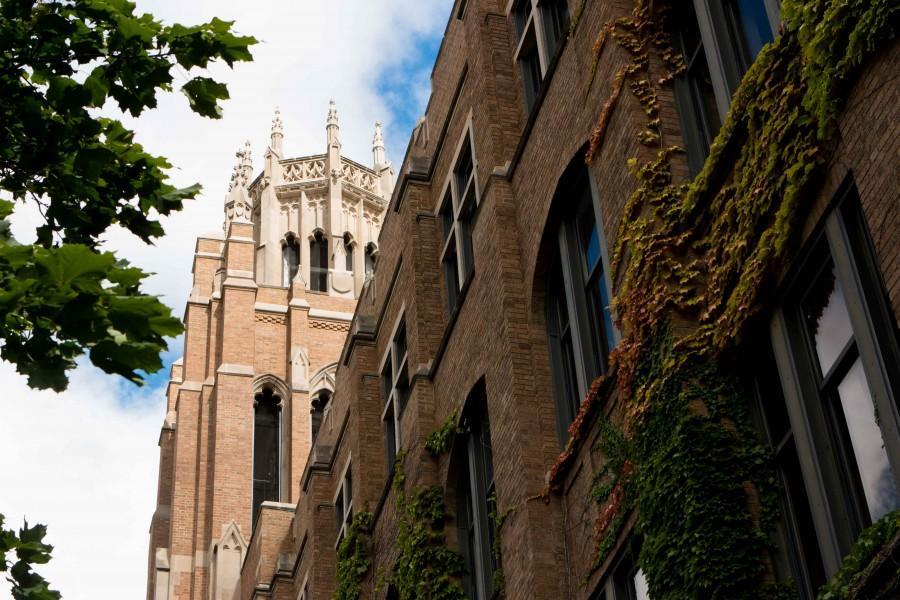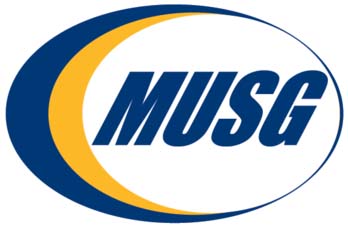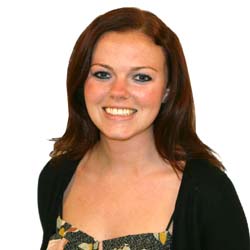A new culminating course titled “Service of Faith and Promotion of Justice” is scheduled to launch within the Core of Common Studies during the 2019-’20 academic school year.
Taught primarily by theology and philosophy faculty, the course will have a special focus on vocation and discernment, inviting students to evaluate their coursework, Sarah Feldner, director of the Core of Common Studies, said.
“This three-credit course is an integration opportunity, emphasizing reflection upon and application of knowledge and skills developed in the Core for life beyond Marquette,” Feldner said.
“Philosophy and theology are two essential, indispensable elements of a Jesuit education,” John Su, vice provost for academic affairs, said in an email. “These disciplines provide students the necessary tools to explore fundamental human questions: Who am I? Why do I exist? How should I act? Why do I suffer, love, die?”
Susan Wood, department chair of theology, said there’s a spiritual dimension to life. At Marquette, helping students get in touch with that, regardless of their faith backgrounds, explores what it means to be human.
“When colleges and universities think about themselves, they like to think what makes them distinctive. It’s important to recognize what makes us distinctive about our education. That course will communicate that extra value to students,” Wood said.
Next year, the theology department will collaborate with the philosophy department to work on the course, Wood said.
“A big job this year has been implementing the new Core Curriculum. We’re charged with teaching the foundations course, which is THEO 1001,” Wood said.
Roughly 45 courses were submitted to the core curriculum committee for the discovery tier. Wood was involved in redoing course descriptions, objectives, course assessments and assignments.
The culminating course for the Core of Common Studies comes as a response to years of student assessment data, Su said.
“(The data) indicated that students wanted an opportunity to integrate learning across their Core courses, to develop meaningful connections between their core and major coursework and to have the opportunity to reflect with each other and faculty experts on the lives they will lead,” Su said.
Feldner said faculty and administrators continually review curricula to ensure that Marquette is responding to a changing world.
“The revisions were the result of the engagement of the campus community in a collaborative process which led to the revised Marquette core curriculum,” Feldner said.
Brian Troyer, dean of undergraduate admissions, said there are a lot of online resources about the Core, though not many questions arise from prospective students about the core curriculum.
“However, given our Catholic and Jesuit identity, I think the topic comes up more than people might think,” Troyer said.
The Office of Undergraduate Admissions has a series of training events and workshops for high school counselors to inform them about new changes on campus, which includes the Core.
Troyer said that leading a Catholic and Jesuit identity attracts students to Marquette.
“We don’t shy away from that identity, but we allow that identity to infuse the way we educate our students. It adds a lot of value to that Marquette degree,” Troyer said.
Su said national research on best practices in teaching reaffirms the importance of culminating courses.
“We are particularly excited to be providing this opportunity for Marquette students,” Su said.



